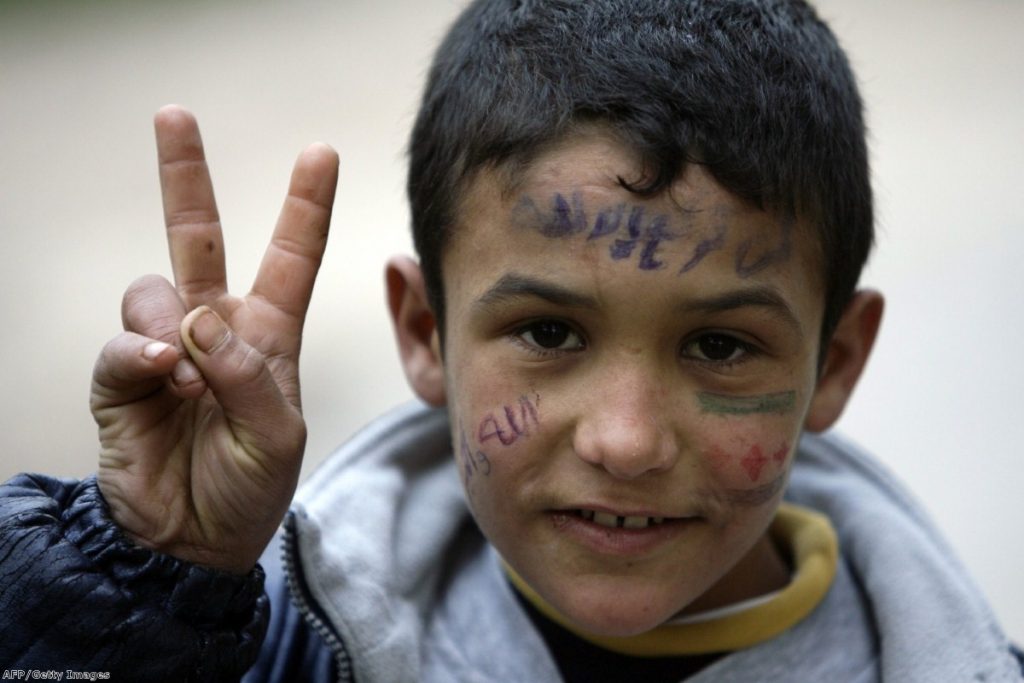Comment: Britain’s betrayal of Syrian refugees
By Sarah Teather MP
There can be no doubt that 2014 took a terrible humanitarian toll on people around the world. The epicentre of this was the ongoing conflict in Syria. More than 70,000 people were killed, whilst Syrians became the largest refugee population in world for the first time.
2015 is just a week old, but we have already seen two worrying trends for Syrians fleeing the violence of war: first, an increase in restrictions imposed on those seeking to settle in neighbouring countries such as Lebanon; and secondly, even more refugees boarding boats and taking risky journeys in the Mediterranean.
The UK has a role to play in reversing these trends, but the government's unwillingness to go beyond tokenistic offers of resettlement is having the opposite effect.


Our approach to the conflict should be threefold: work with countries which can influence the situation on the ground to find lasting peace in the region; ease the humanitarian crisis unfolding on Syria's borders through aid; and accept our share of refugees for resettlement. On the last of these, our record leaves much to be desired.
In the last year or so, I have visited both Jordan and Lebanon. Nearly every Syrian I spoke to told me they wanted to return home as soon as it was safe enough. For most, seeking sanctuary in neighbouring countries makes sense. That's why the UK's contribution to the humanitarian aid effort has undoubtedly been significant and the government should be applauded for its commitment.

But this has been undermined by our failure to contribute meaningfully to the UN's resettlement programme, with just 90 Syrians resettled in the UK since our own scheme was set up at the beginning of last year.
RT @Refugees: Asylum is massively stretched close to Syria – puts UK's 0.00015% in perspective http://t.co/TPyGlZdly6 http://t.co/hzw2h6hH7Y
— Democritus (@Democritus) January 8, 2015
I was delighted when the government announced its Syrian Vulnerable Persons Relocation (VPR) scheme, which is focused on those who cannot settle in the region and need longer-term solutions: torture victims, those who have faced sexual violence and those who need specialist medical treatment.
However, the numbers involved are paltry compared with the scale of the crisis. The 90 people we have resettled is also in stark contrast to Germany's offer to accept 30,000. And while Sweden and Norway both pledged a further 1,500 resettlement places at the UNHCR pledging conference in December, the UK did not offer a single extra place.
In justifying this, ministers often frame the issue as a choice between aid and resettlement, as if the former precludes the latter. We should be doing both. Despite the generosity of Turkey, Lebanon, Egypt, Iraq and Jordan – who between them have taken in 97 per cent of Syria's refugees – the burden is simply becoming too heavy for Syria's neighbours to bear.
That's why we are starting to see increased management of Syria's borders. This week, Lebanon announced a new visa system for Syrians. The number of refugees in Lebanon is estimated to make up a third of its population, giving it the largest concentration per capita in the world. The pressure on housing and basic resources such as water is intense. While this makes the reasons for the new visa system clear, the consequences are grave.
Alongside aid and resettlement, the UK's efforts should be directed towards keeping borders open. As Home Office minister James Brokenshire told me in parliament this week, refugees fleeing conflict should not be turned back at the border. But what ministers seem unable to accept is that by refusing to increase the scale of our own refugee resettlement programme we have absolutely no moral standing when arguing with neighbouring countries that they should keep their borders open.
With no sign of abatement in the conflict in Syria, increasing violence in Iraq, and more restrictions in neighbouring countries, no-one should be surprised that Syrians are resorting to ever more dangerous means of reaching safety.
The use of 'ghost ships' – large, disposable vessels carrying hundreds of migrants each across the Mediterranean's dangerous waters – is a direct result of this. The IOM reports that, in the last week alone, more than 1,000 migrants have been rescued from these ships. Most of those were Syrian. Last year, more than 3,000 people died trying to reach Europe in this way. Shockingly, the EU's response has been to end support for search and rescue operations.
Even if they survive the boat journey, once in Europe safety remains a distant prospect. Many of the hundreds of Syrian refugees stuck at Calais have become so desperate that they are willing to risk their lives by clinging to lorries leaving the port for Britain. Sadly, many have died.
The desperation comes from a lack of alternatives. Addressing this means providing safe, legal routes into the UK. Expanding the scale of the VPR scheme would be a good place to start. Another sensible step would be to change the criteria for family reunification, to offer sanctuary to family members of those already settled here.
Of course, the UK cannot resettle all of Syria's 3.2 million refugees, and nor should it. Aside from the notable examples set by Germany and Sweden, with only three per cent of those displaced finding safety outside the region there is clear scope for the EU and the international community as a whole to make a bigger contribution. But if we are only willing to resettle 90, we are in no position to push other countries to contribute more.
Sarah Teather is the Liberal Democrat MP for Brent Central
The opinions in Politics.co.uk's Comment and Analysis section are those of the author and are no reflection of the views of the website or its owners.

